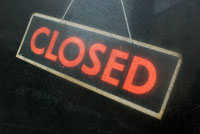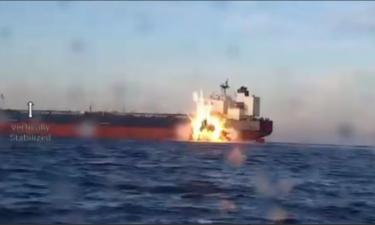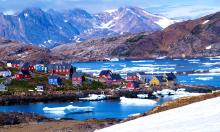Luxury Brands No Longer in Demand in Russia
Decrease in demand for products of Luxury, Premium and Upper Middle segments in Russia in 2009 amounted to 15-20% (in Rubles), which is equal to the drop of 40-45% because of the exchange rate difference. Most luxury operators had stopped their expansion and focused on the development of their existing projects in large Russian cities.

Drop in demand causes changes in the pricing policy of the stores selling luxury brands. During sales season the discounts reached 70%, which allowed many retailers to preserve sales volume. The prices during that period were comparable to the prices for similar products in glamour fashion capitals of continental Europe, Paris and Milan, RRG reports.
Many Russian clients of luxury brands prefer shopping in Europe. The main difficulty with promoting luxury retail in Russia is the need in serious investments accompanied by the lack of cheap loans.
The expenses for one store amount to €12-15 thousand for each square meter. Companies working in this segment usually open stores with the area of 150-300 square meters. Additionally, these companies have large expenses buying collections that are ordered and pre-paid 7 to 8 months prior to the delivery. According to the research group, it takes a store 5 to 7 years to break even.
Most luxury operators do not work in Russian directly and prefer working with local partners who are more knowledgeable about the specifics of conducting business in Russia. Naturally, it reduces risks and expenses associated with opening new stores.
Last year, low profitability forced a number of luxury retailers in Russia to shut down their operations. All Diesel stores were closed in Moscow when the company “Vintage Technology” was no longer interested in maintaining the franchise. Stella McCartney and Alexander McQueen stores that opened on Kuznetsky Most in 2007 also left the market. The same happed to Vivienne Westwood store.
Most of European brands opening mono-brand stores already have representation in Russia. As for American brands, most of them prefer developing in North America, with only few expanding to European and Russian markets.
During the research, RRG studied 272 luxury brands that opened mono-brand stores in Russia. The smallest market share in Russia (16%) belongs to Luxury brands (the most expensive and famous), the largest - to Premium - 45% (prestigious, but less expensive and known brands). Upper Middle segment with 39% is in the middle (brands better than average, designed for mass consumer).
Luxury brands have presence in each of the seven federal districts of the Russian Federation, with the most significant presence in European part of Russia. 527 mono-brand stores are located in the Central district, with 513 stores in Moscow that represents the luxury market of the Central Federal district.
Northwestern Federal District is the second one in terms of the number of luxury brands with 120 stores. 101 stores are located in Saint Petersburg and 19 in Kaliningrad. Luxury brands stores are present in ten cities of Volga Federal District and eight in South Federal District. According to RRG, the least number of luxury brands stores, 12, is in the Far East Federal District, with seven of them located in Vladivostok.
Most luxury brands are located in regional capitals, and 62% of the operators prefer opening their stores in malls, especially in the Central and South Federal Districts.
On the contrary, the operators in the Ural and Siberian Federal Districts prefer opening their stores in street retail format. In Northwest, Volga and the Far East Federal Districts luxury brands operators open equal number of stores in street retail format and malls. Most stores of Luxury category of the luxury segment prefer opening separate brand stores.
According to analysts, further development of luxury brands in the Russian market will depend on the economical situation as a whole. As the crisis subsides, consumer activity would increase, and demand for luxury brands would grow. The increased demand may boost the interest of luxury segment operators in the Russian market.
Sergey Nikolaev
Pravda.Ru
Subscribe to Pravda.Ru Telegram channel, Facebook, RSS!




